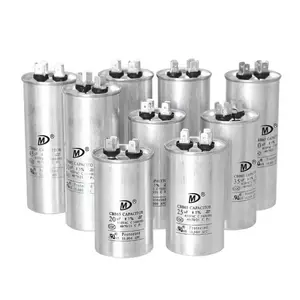Understanding Capacitors Tolerance
Capacitors are essential components in a variety of electronic devices, playing a critical role in storing and releasing electrical energy. One key aspect of capacitors that significantly affects their performance is their tolerance. Capacitors tolerance refers to the permissible variation in capacitance values from their rated specifications. This article delves into the types, functions, and features of capacitors tolerance, providing valuable insights for both amateurs and professionals in the electronic field.
Types of Capacitors Tolerance
Capacitors come in various types, each with distinct tolerance levels. Understanding these types is crucial for selecting the right component for your project:
- Standard Capacitors: Typically have a tolerance of ±20%, suitable for general applications where exact values are not critical.
- Tight Tolerance Capacitors: These capacitors offer a tolerance range of ±5% or less, ideal for precise applications such as audio equipment and RF circuits.
- Very Tight Tolerance Capacitors: With tolerances as low as ±1%, these capacitors are used in advanced electronic applications demanding exceptional accuracy.
- Electrolytic Capacitors: Often have wider tolerances (±20% to ±50%) but are valued for their high capacitance in compact sizes.
- Film Capacitors: These typically provide better tolerances, ranging from ±1% to ±5%, making them suitable for high-frequency applications.
Function and Features of Capacitors Tolerance
Capacitors tolerance not only indicates the accuracy of a capacitor’s capacitance but also plays a vital role in determining its functionality. Below are some essential features associated with capacitors tolerance:
- Precision: Capacitors with tight tolerances ensure minimal deviation in capacitance, which is crucial in sensitive circuits, where even slight variances can affect performance.
- Reliability: High-tolerance capacitors are generally more robust, leading to increased reliability in long-term applications.
- Temperature Stability: Many capacitors maintain their tolerance specifications across a range of temperatures, crucial for devices operating in variable environments.
- Durability: Capacitors designed with strict tolerance levels often utilize superior materials that improve their lifespan and performance under stress.
Applications of Capacitors Tolerance
The relevance of capacitors tolerance spans numerous industrial and consumer applications:
- Consumer Electronics: From smartphones to televisions, precise capacitors ensure optimum performance and sound quality.
- Industrial Equipment: Machinery and equipment that require stable power supply utilize capacitors with tight tolerances to maintain operational integrity.
- Automobile Industry: Modern cars employ precision capacitors for electronic control units (ECUs) that manage engine performance and safety features.
- Research and Development: In labs where measurement accuracy is key, high-tolerance capacitors provide essential reliability for experimental setups.
- Power Supply Systems: Capacitors with low tolerances are crucial for stabilizing voltage and enhancing efficiency in various power applications.
Advantages of Capacitors Tolerance
Investing in capacitors with suitable tolerance specifications brings several advantages that can greatly enhance device performance:
- Enhanced Performance: Higher tolerance improves overall circuit stability and performance, especially in critical applications.
- Lower Risk of Failure: Selecting capacitors with appropriate tolerances reduces the likelihood of component failure, leading to lower maintenance costs.
- Energy Efficiency: Accurate capacitors contribute to better energy management and conservation in electronic designs.
- Improved Design Flexibility: With a range of tolerances available, engineers can design circuits tailored to specific operational needs without compromising performance.









































